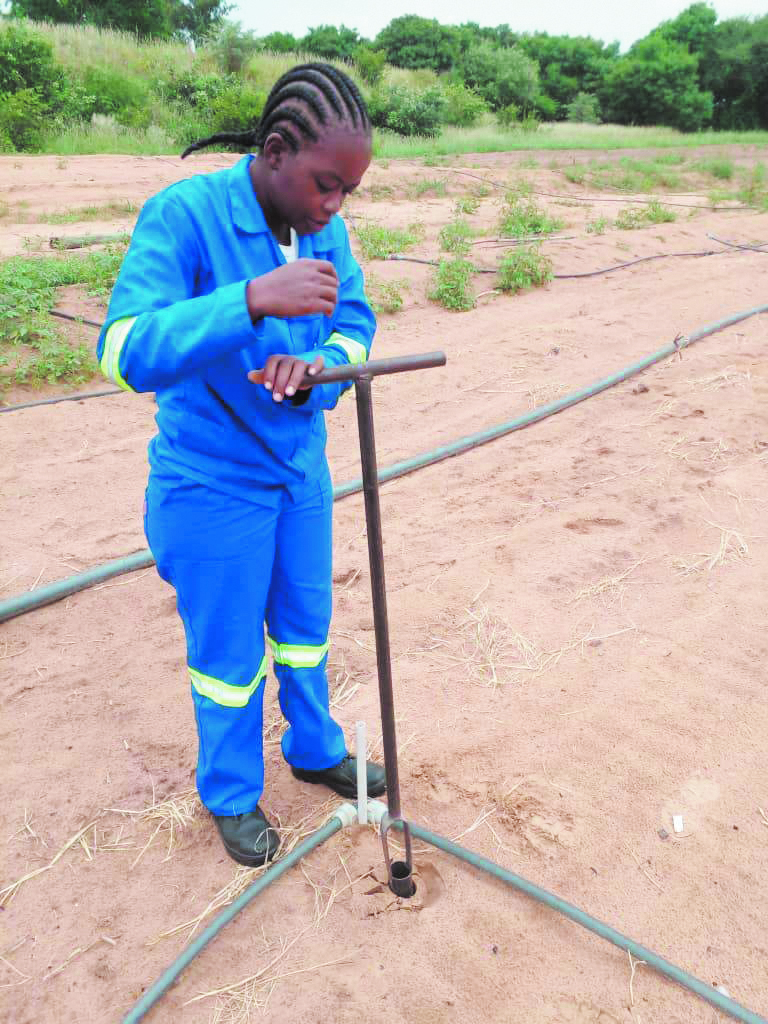Rundu-born Magdalena José has nurtured the love for nature since her childhood. Her fascination with the natural world has shaped her journey into agriculture.
“I have always loved plants, trees and flowers for as long as I can remember, something I had in common with my late mother,” she recalls.
“We would always do gardening together and I loved taking care of her flower pots,” says the 27-year-old woman.
Today, José is the founder of Mana Magdalena’s Garden which she established three years ago at their village home in the Kaisosi area of Rundu. She is also a horticulture and crop husbandry student at the Rundu Vocational Training Centre.
“After attending some workshops, I realised the impact and importance of agriculture, food security in particular. I desired to make a meaningful impact on food security and poverty alleviation,” she says.
José cultivates crops like cabbages, onions, tomatoes, spinach, beetroot, pumpkins, butternut, gem squash, mutete and maize.
However, she has faced challenges in her quest to become a successful small scale-farmer.
“One of our main challenges is water. We do not have sufficient water pressure, and therefore cultivation is usually under stressful circumstances,” she says.

As a result, most of the crops end up wilting and withering because of extreme heat and inadequate water supply.
“Starting up as a farmer can be very difficult due to the cost of beginning. One is required to have capital for quality seeds, fertiliser, pesticides, the cost of labour, transportation, marketing and packaging,” says José.
She emphasised the importance of minimising environmental degradation during farming.
“We are mostly semi-organic farmers, which means we use organic methods of production. Many inorganic pesticides and fertilisers are not only a health hazard to humans, but are also an environmental hazard,” she says.
She says she uses compost, cow manure and leaves to fertilise the soil.
“Adding organic methods to our production is our way of preserving the soil and is also a way to produce quality, healthy and nutritious vegetables that are suitable for human consumption,” she says.
José believes there are opportunities for women in agriculture and there is a need to empower more women in this sector.
Being a female farmer, especially a young one in a male-dominated industry is something she’s proud of.
“My experience in this field has been good thus far and I am encouraging fellow women to get more involved in farming. I believe there are a lot of opportunities for us women when it comes to agriculture, especially if we work together,” she says.
José believes that the government should fund the youth to get involved in small-scale farming to cut down on the millions of dollars the country spends to import fresh produce from South Africa.
Stay informed with The Namibian – your source for credible journalism. Get in-depth reporting and opinions for
only N$85 a month. Invest in journalism, invest in democracy –
Subscribe Now!










